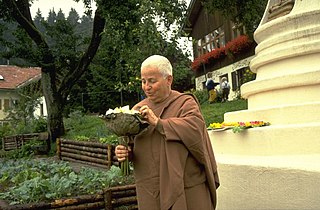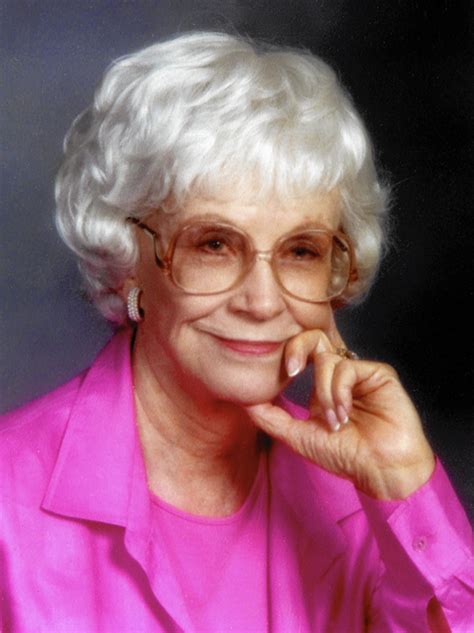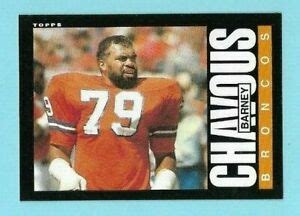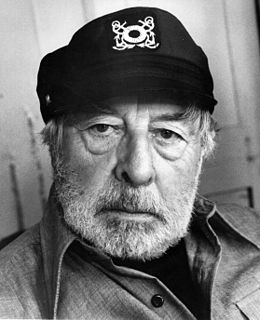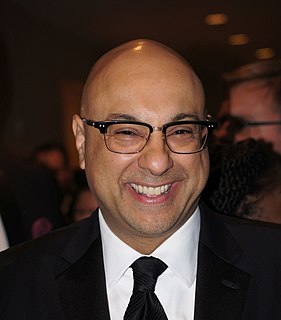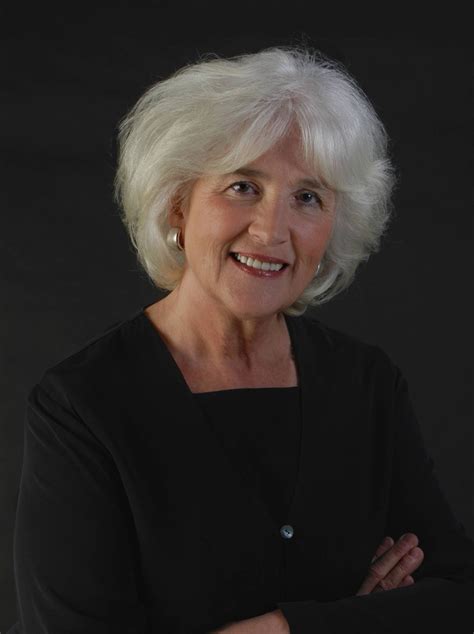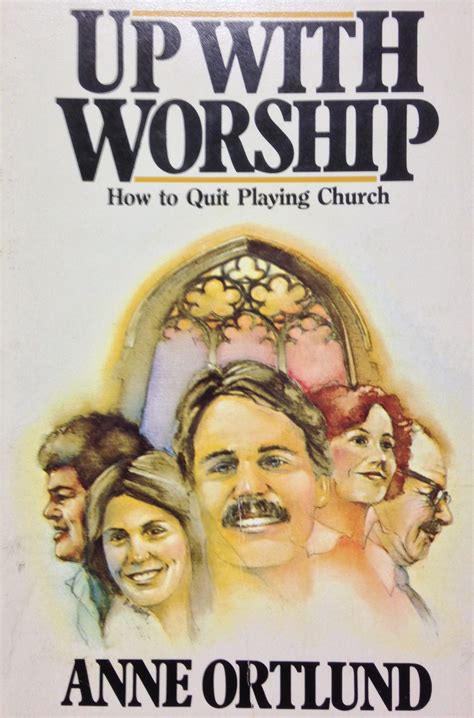Top 341 Reacting Quotes & Sayings - Page 6
Explore popular Reacting quotes.
Last updated on November 17, 2024.
Here's a memonic device that I feel teaches how we can properly cope with failure. Forget about your failures; don't dwell on past mistakes Anticipate failure; realize that we all make mistakes. Intensity in everything you do; never be a failure for lack of effort. Learn from your mistakes; don't repeat previous errors. Understand why you failed; diagnose your mistakes so as to not repeat them. Respond, don't react to errors; responding corrects mistakes while reacting magnifies them. Elevate your self-concept. It's OK to fail, everyone does; now how are you going to deal with the failure
The antidote to hatred in the heart, the source of violence, is tolerance. Tolerance is an important virtue of bodhisattvas [enlightened heroes and heroines] - it enables you to refrain from reacting angrily to the harm inflicted on you by others. You could call this practice "inner disarmament," in that a well-developed tolerance makes you free from the compulsion to counterattack. For the same reason, we also call tolerance the "best armor," since it protects you from being conquered by hatred itself.
I found that whenever I encountered a situation, rather than just reacting to it, it was tremendously useful to think carefully about how I should react to it and other situations like it. Besides providing me with more thoughtful responses in each of these cases, approaching things this way provided me and others with guidance on how to deal with similar situations when they came up in the future.
When you are thinking about whether you have an obligation to try to save people's lives, you don't usually think, well, how close by are they? Understanding what we are reacting to can change the way we think about the problem. If, biologically, morality evolved to help us get along with individuals in our community, it makes sense that we have heartstrings that can be tugged - and that they are not going to be tugged very hard from far away. But does that make sense? From a more reflective moral perspective, that may just be a cognitive glitch.
When you reflect upon the significance of Dr. King to this nation, it's criminal that he hasn't had a feature film that was centered around him until now. That, in and of itself, was emotional. But when you're doing scenes on the Edmund Pettus Bridge, with people still living in Selma and now in their 60s and 70s who had actually marched, who were there that original Bloody Sunday, that's humbling... that's deeply moving. You're no longer acting at that stage, you're just reacting, because it takes the filmmaking process to another dimension.
Performing onstage is all about reacting in a grand way. You're playing an arena of seventeen or eighteen thousand people and it's your job to make sure the person at the back feels as cool as the person all the way in the front. Being on stage is a bit of a façade. You get to walk out there and be the coolest version of yourself that you could possibly have imagined and then you come off stage and you're just like everyone else.
I follow many tragedies around the world. At one point I [will] feel like I've accumulated an enormous amount of information, a critical mass amount of information, and I feel like acting - reacting. My manifesto has always been the same: I cannot act in the world before understanding the world. I will not move a finger. I will not come up with any ideas - nothing - until I actually understand what is happening.
Suffering is our best teacher because it
hangs onto us and keeps us in its grip
until we have learnt that particular
lesson. Only then does suffering let go. If
we haven’t learnt our lesson, we can be
quite sure that the same lesson is going
to come again, because life is nothing but
an adult education class, If we don’t pass
in any of the subjects, we just have to sit
the examination again. Whatever lesson
we have missed, we will get it again. That
is why we find ourselves reacting to
similar situations in similar ways many
times.
Maybe certain aspects of what I was doing were reacting against what was happening or what people said, too. That's something that happens when you're starting out. After some time goes by and you get a little perspective, you realize that you don't need to react. You can just carry on with what you're doing. That took me a long time figure out; I've only gotten to that point in the last five or 10 years.
It's such a wonderful feeling to watch a child discover that reading is a marvelous adventure rather than a chore. I know that many writers for children say they do not write specifically with a child audience in mind ... This isn't true for me. I am very aware of my audience. Sometimes I can almost see them out there reacting as I write. Sometimes I think, 'Oh, you're going to like this part.
Since 1950 I have been keeping a film diary. I have been walking around with my Bolex and reacting to the immediate reality: situations, friends, New York, seasons of the year. On some days I shoot ten frames, on others ten seconds, still on others ten minutes. Or I shoot nothing. Walden contains material from the years 1964-1968 strung together in chronological order.
From our limited vantage point, our lives are marked by an endless series of contingencies. We frequently find ourselves, instead of acting as we planned, reacting to an unexpected turn of events. We make plans but are often forced to change those plans. But there are no contingencies with God. Our unexpected, forced change of plans is a part of His plan. God is never surprised; never caught off guard; never frustrated by unexpected developments. God does as He pleases and that which pleases Him is always for His glory and our good.
Percy France told me, similarly, he and Bird used to hang out. They were good buddies. And he said, "Man, we'd just walk through town, sometimes with our horns. And we'd walk by past an Irish bar. And you'd stand outside and check out the music. And Bird would go in and sit in with these traditional Irish musicians. Then we'd past a Greek restaurant and we'd hear that. And Charles "Bird" Parker would go sit in with those guys. He was just listening to everything, reacting to everything.
We played a show the other week at this festival and it was an audience that I'd never normally play in front of. That's one the greatest things about festivals: you don't always get your audience, you get people who just pop in out of curiosity. The reaction was amazing; there were people dancing, which we've never had, I guess because the message is pretty powerful and the performance is a lot more visceral than it has been previously. The audiences seem to be reacting to that really well and it's a wonderful thing, because at a performance you really bounce off your audience.
And I told you: I think of a photograph you took of me, up in Montreal. You told me to jump in the air, so in the picture, my feet are off the ground. Later, I asked you why you wanted me to do that, and you told me it was the only way to get me to forget about the expression on my face. You were right. I am completely unposed, completely genuine. In my mind’s eye, I picture myself like that, reacting to you.
I can feel how an audience is reacting when I'm on a stage, but when you are on stage, your perception is distorted. That's something you just have to know. It's like pilots that fly at high Gs and they lose, sometimes, consciousness and hand/eye coordination and they just have to know that that's going to happen. They have to be trained to not try to do too much while they are doing that. So when you are on stage, you have to be aware that you are wrong about how it feels a lot of times.
There are some political issues where mainstream press attention only hurts. We think about activism as being this generic model of consciousness-raising, then hopefully media attention, attraction of new people to your cause, building public support for your cause, then decision-makers reacting to that change in public opinion. That's true for some types of activism, but it is not true for all of them.
I have to control my mouth - and that's hard enough - and then I have to manipulate the puppet and make it look real - like, make its interactions look real. And then I have to sing at the same time, and I have to have my facial expressions reacting to the puppet... So it's a lot going on, and I have to focus on every single thing at the same time.
When you’re living by default, you’re automatically reacting to life in habitual ways, many of which may be limiting you and your life. In contrast, living deliberately means making more conscious and constructive life choices. When you’re living deliberately, you’re living from a position of responsibility; you’re making choices with greater awareness. You’re taken yourself off autopilot, so you’re better prepared to align your actions with the results you want to achieve.
The way people are responding to [Moonlight movie] is something we never anticipated. We knew it was good but it is so diverse. The way people are reacting shows me that everyone sees themselves in it. That is groundbreaking. Similarly people come up some older people that it is not their story but are just crying in our arms after a screening. They know what it was like to be bullied or struggled with their own identity trying to figure out who they are. It has really caught people's imaginations.
Directing is a reactionary job more than a creation job. The job is to react whether it's moment one, the first time you read the script or see an article or read a book or notice something happen on the street and have an idea for a movie, and it just continues from there on in. You're just reacting to dialogue, a performance, an audition, a headache, a piece of furniture, a piece of clothing.
Chess is a very positive way to exercise your mind. It makes you look at the whole picture...what are your options and what is the best thing to do? In football, you are mostly reacting from a defensive point of view...but you always want to be counterattacking...a similarity with chess strategy. Chess and offensive football are quite similar; you sacrifice something now to get something back later.
Have any of you taken a look out at Greece in the last, say, hour or so? (Hermes) What? Are they reacting to the fact I cursed the Apollites? (Apollo) I don’t think that bothers them nearly as much as the fact the island of Atlantis is now gone and the Atlantean goddess Apollymi is cutting a swathe through our country, laying waste to everyone and everything she comes into contact with. And in case you’re curious, she’s headed straight for us. I could be really wrong here, but I’m guessing the woman’s extremely pissed. (Hermes)
We often sometimes forget that- prior to the invention of removable pipe- there really were no English Bibles. We have treasures, we have Bibles in every size and shape and color. But there's a failure to recognize what's contained inside the cover of the Bible. We grow apathetic, and I think that the issue is reacting to the Word of God. Not just carrying, but get back into the Word of God and then get the Word of God into us. It's all about mining the scripture, memorizing the scripture, and meditating with our scripture.
I don't want to be like the actor who rehearses everything in the bathroom, then comes to the set and carries on completely uninterrupted while the other actors tiptoe away. I'm so dependent on reacting to the other actors on the set, and to the director. I'm very responsive. I react. And I treasure the energy that reaction gives. I feed off that and work off that. I don't like to be too prepared, no. However we define too prepared, if I feel it's getting that way, then I'll back off. My line-learning is very special. I like to learn the dialogue of the whole film before I arrive.
The way the left is reacting to the death of Fidel Castro up against the incontrovertible facts of who he was, you want to talk about a disconnect. In fact, I don't think it is a disconnect. I think the left, the power brokers, the leaders, I think they actually did admire the guy. I think this is what they think Castro's power - I've always said, the people have asked me, how do these actors and people and these leftist politicians, how come they admire people like this? I said, "They envy their power." And I think there may be a lot to that.
No matter how unreasonable others may seem, I am responsible for not reacting negatively. Regardless of what is happening around me I will always have the prerogative, and the responsibility, of choosing what happens within me. I am the creator of my own reality. When I [review my day], I know that I must stop judging others. If I judge others, I am probably judging myself. Whoever is upsetting me most is my best teacher. I have much to learn from him or her, and in my hearts, I should thank that person.
Seeds not planted or tended by choice tend to be weeds, so at least for me, it's very helpful to consciously and periodically choose which seeds I want to water, and to think through what I expect to happen from that watering. Investors can spend a lot of time and energy reacting to the latest bits of news and trying to predict the next surprise, rather than choosing a consistent set of daily actions that they can carry out as things develop, regardless of how they develop.
The weakness of cable news is that it chases its audience around. Your audience wants fast-paced, popular news. It needs real news. Cable news changes its stripes based on audience reaction. Viewers are reacting well to breaking news? You probably do more breaking news than you need to. The struggle is building something so that people will come to you, as opposed to constantly changing what you are because you're unsure of where the audience is.
Are they real fires? Or are people just reacting to something? Just because there’s an alarm going doesn’t mean it’s a fire. And I think that people are confusing the two. It’s only a fire when it offends the fans, and the fans turn on you. Tosh has fans, and they get the joke. If you’ve watched enough Tracy Morgan, you let the worst thing go by. When did Tracy Morgan become Walter Cronkite? You have to mean something to me to offend me. You can’t break up with me if we don’t date.
It's hard work. It's really hard work, but it's really interesting. We have this camera, I think it's called a SimulCam, and when you play it back, you can see the giant in the scene you just shot. It's incredible. You're reacting to a tennis ball that's way up there, then when you watch it, it's this huge giant's face on it. Wow. That's cool. I just can't wait to see it when it's all edited together and the special effects are all crystal clear. It's going to be, hopefully, amazing.
If we parents accept that problems are an essential part of life's challenges, rather than reacting to every problem as if something has gone wrong with the universe that's supposed to be perfect, we can demonstrate serenity and confidence in problem solving for our kids.By telling them that we know they have a problem and we know they can solve it, we can pass on a realistic attitude as well as empower our children with self-confidence and a sense of their own worth.
The other thing that I got back then - the Parker novels have never had much of anything to do with race. There have been a few black characters here and there, but the first batch of books back then, I got a lot of letters from urban black guys in their 20s, 30s, 40s. What were they seeing that they were reacting to? And I think I finally figured it out - at that time, they were guys who felt very excluded from society, that they had been rejected by the greater American world.
The books I made, most of those books were made in the '80s or early '90s. I was reacting emotionally at that time; it wasn't an intellectual thing. I didn't make those things for public presentation; those were for my friends. So I wasn't doing this to be an advocate for what I'm talking about right about now. But I'm realizing I was working properly as an artist, or whatever you want to call it, as somebody that naturally was inquisitive.
I describe it ( the new aesthetics) 'radically': I say aesthetics = human being. That is a radical formula. I set the idea of aesthetics directly in the context of human existence, and then I have the whole problem in the hand, them I have not a special problem, I have a "holography" (reacting on a former suggestion of the public as a slight joke, fh) I don't know exactly what a holography is.. (1973
Lars is played by Ryan Gosling, the Prince of Tics, whose idea of acting is to wait a few beats before reacting to other people's remarks, as if acting were merely a matter of adhering to the seven-second delay rule. Jack Nicholson has made a career out of doing this sort of thing, as did Paul Newman, as did Marlon Brando (who the other two learned it from), but they didn't do it all the time and they were more fun to look at... Lars And The Real Girl joins a number of other recent films in the category of motion pictures where the director doesn't know that his protagonist is unsympathetic.
Day by day, morning by morning, begin your walk with Him in the calm trust that God is at work in everything....It is your personal business, as a discipline of your heart, to learn to be peaceful and safe in God in every situation....Remember, friend, where your real living is going on. In your thinking, in your reacting, in your heart of hearts - here is where your walk with God begins and continues. So when you start to move into trusting Him, stay there. Don't wander out again into worry and doubt!
Sometimes when I can't communicate that I'm frustrated, I'll just grab my guitar and I can play out that emotion and be able to cope with whatever is going on. So even being able to, like I said, share this gift with so many other people, it's definitely very therapeutic. It helps me just to focus and to be able to kind of get out those emotions that I'm having without reacting in such a way that's not acceptable in society.
I don't feel like music is getting more intense; I think generally the channel for deeper harmonic saturation is not just a sine wave - but a really crunched sine wave. The trend in music is towards a harmonic saturation. I wouldn't say I'm reacting against that. It's just a personal choice to move into some weird space. This also allows me breathing room in the future. It just felt like the right thing to step back on.







